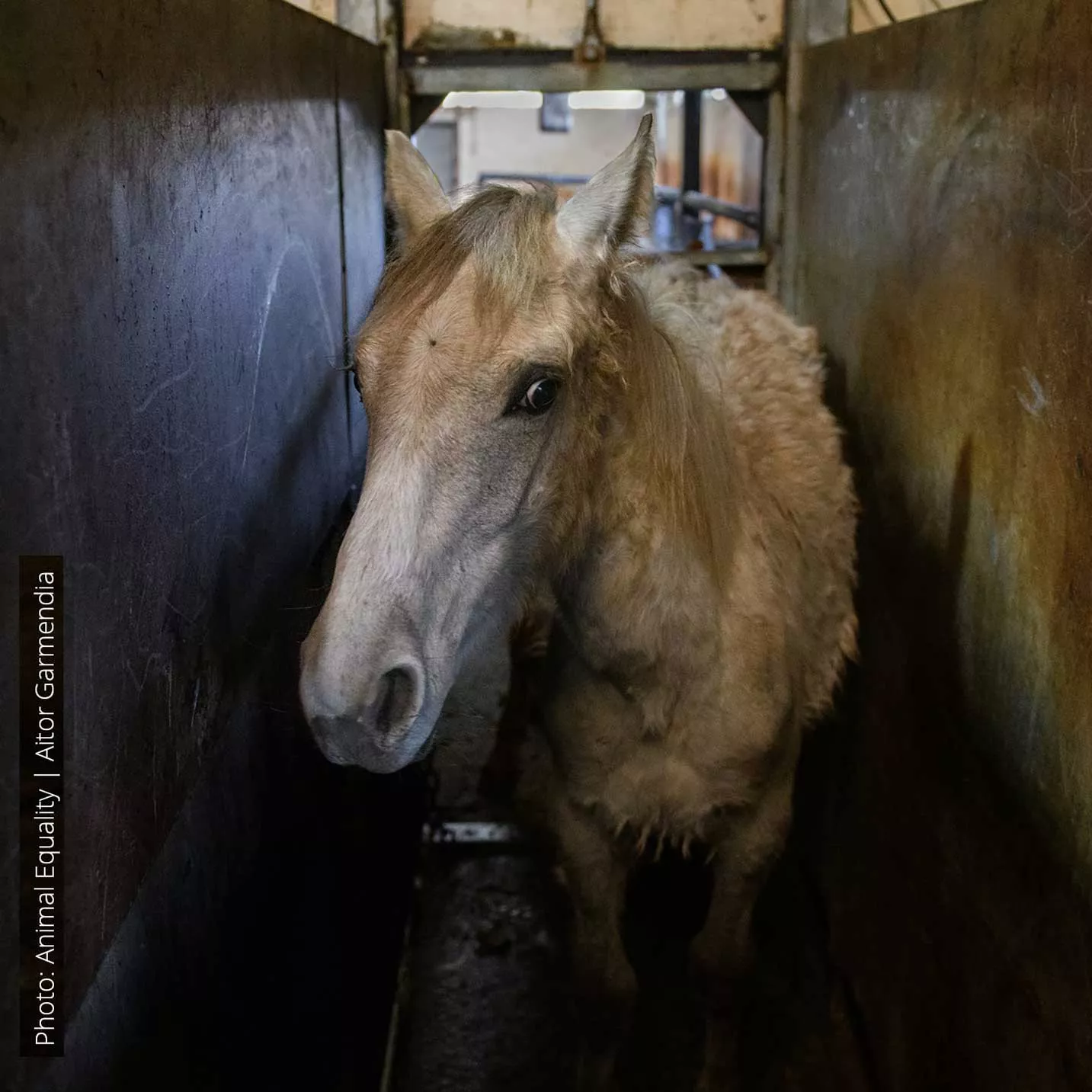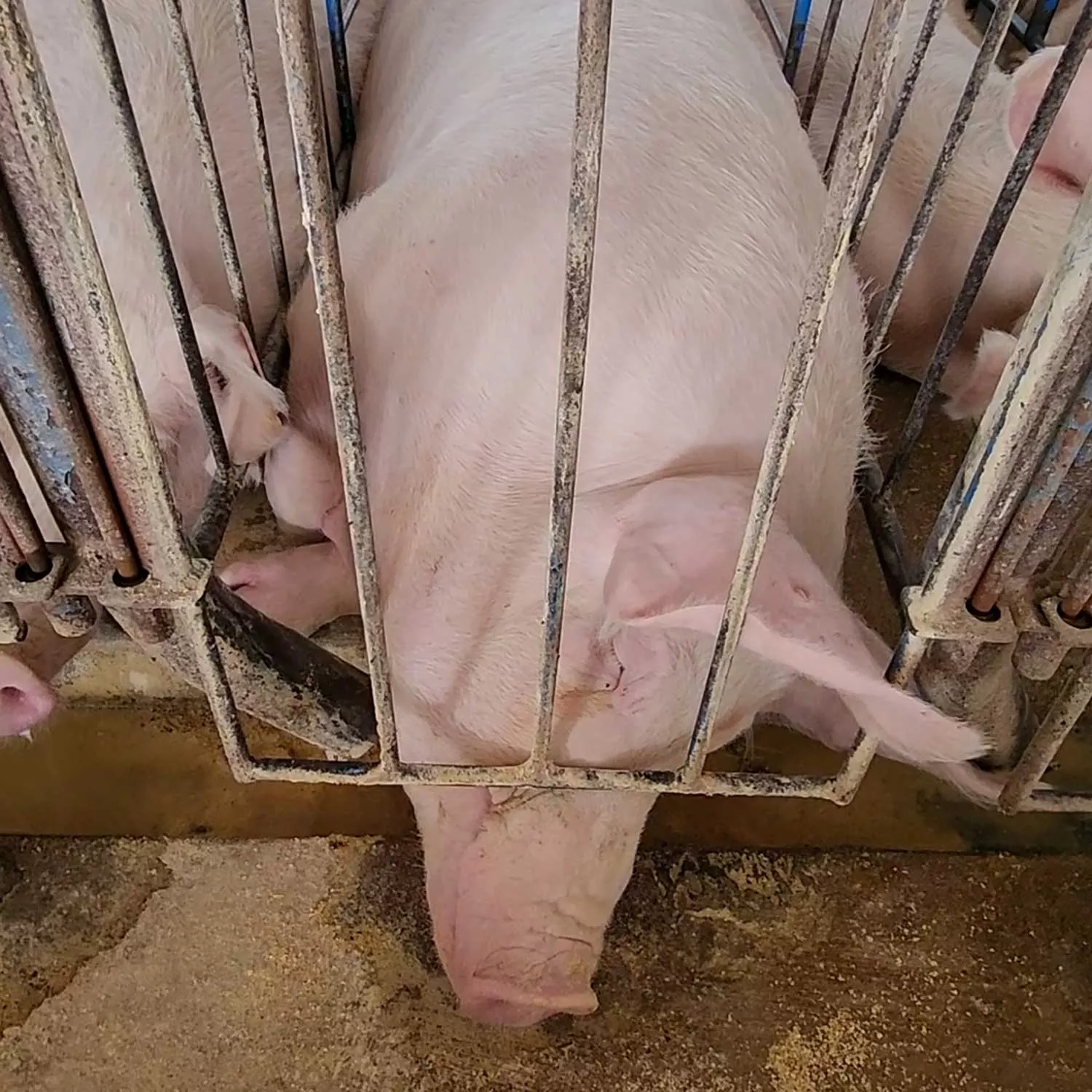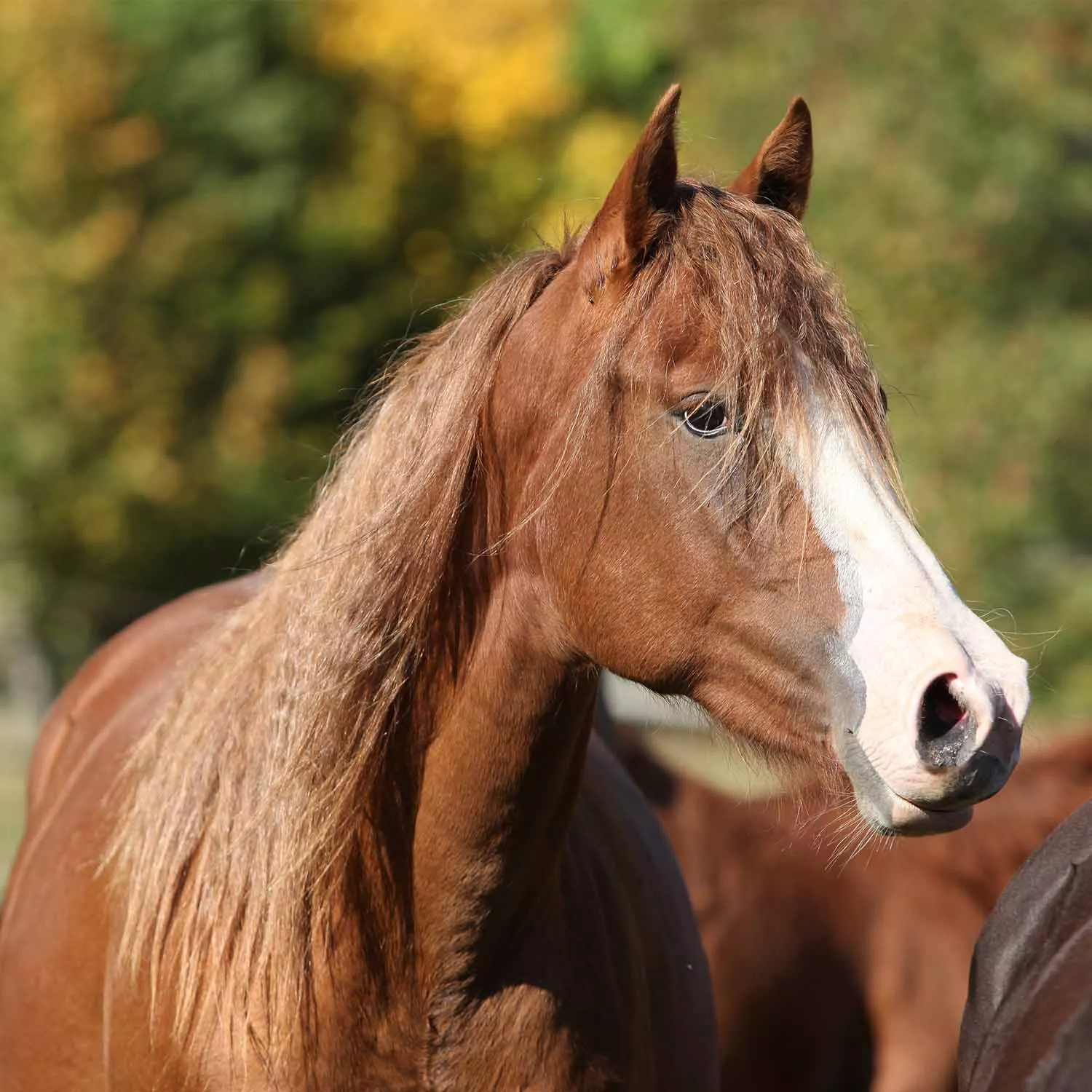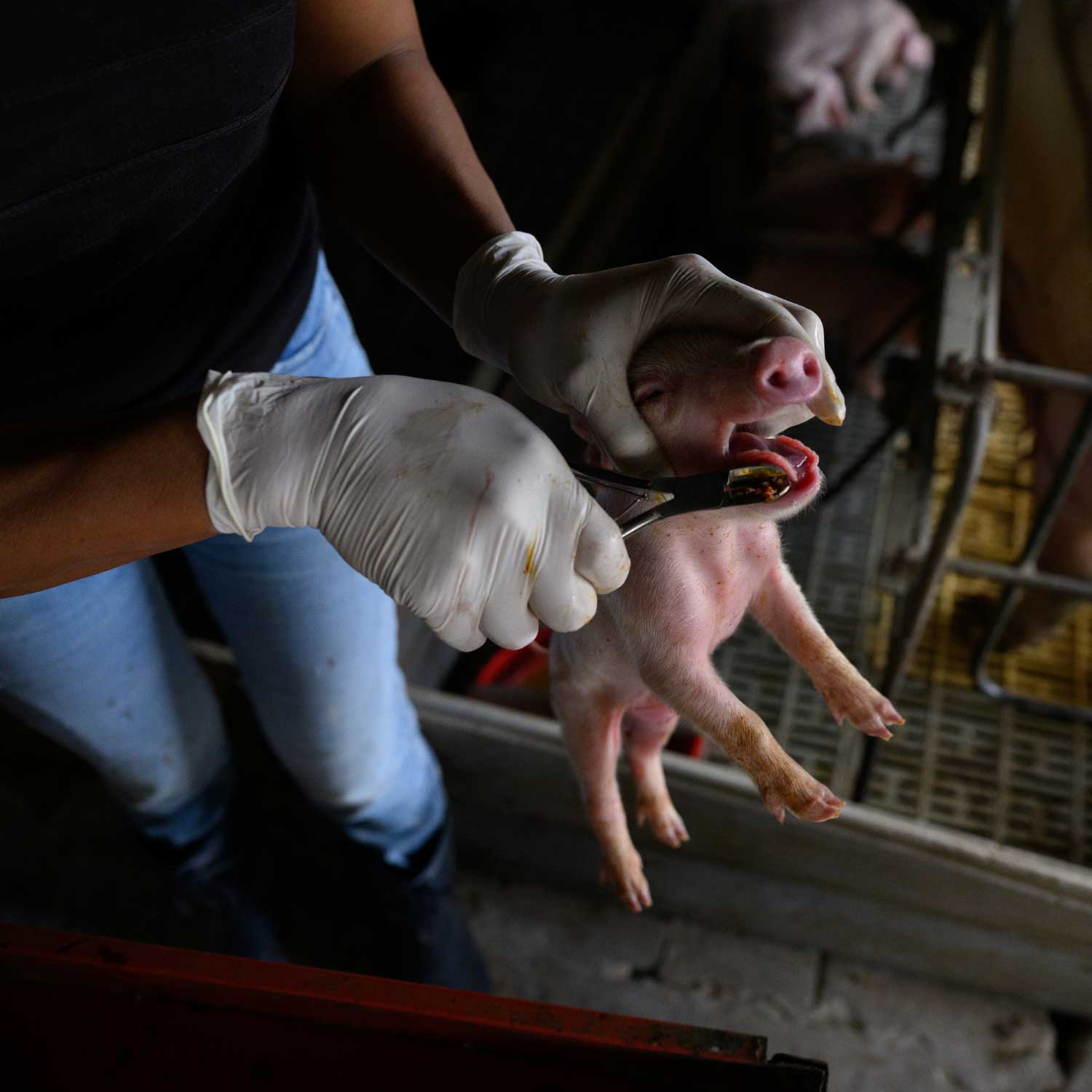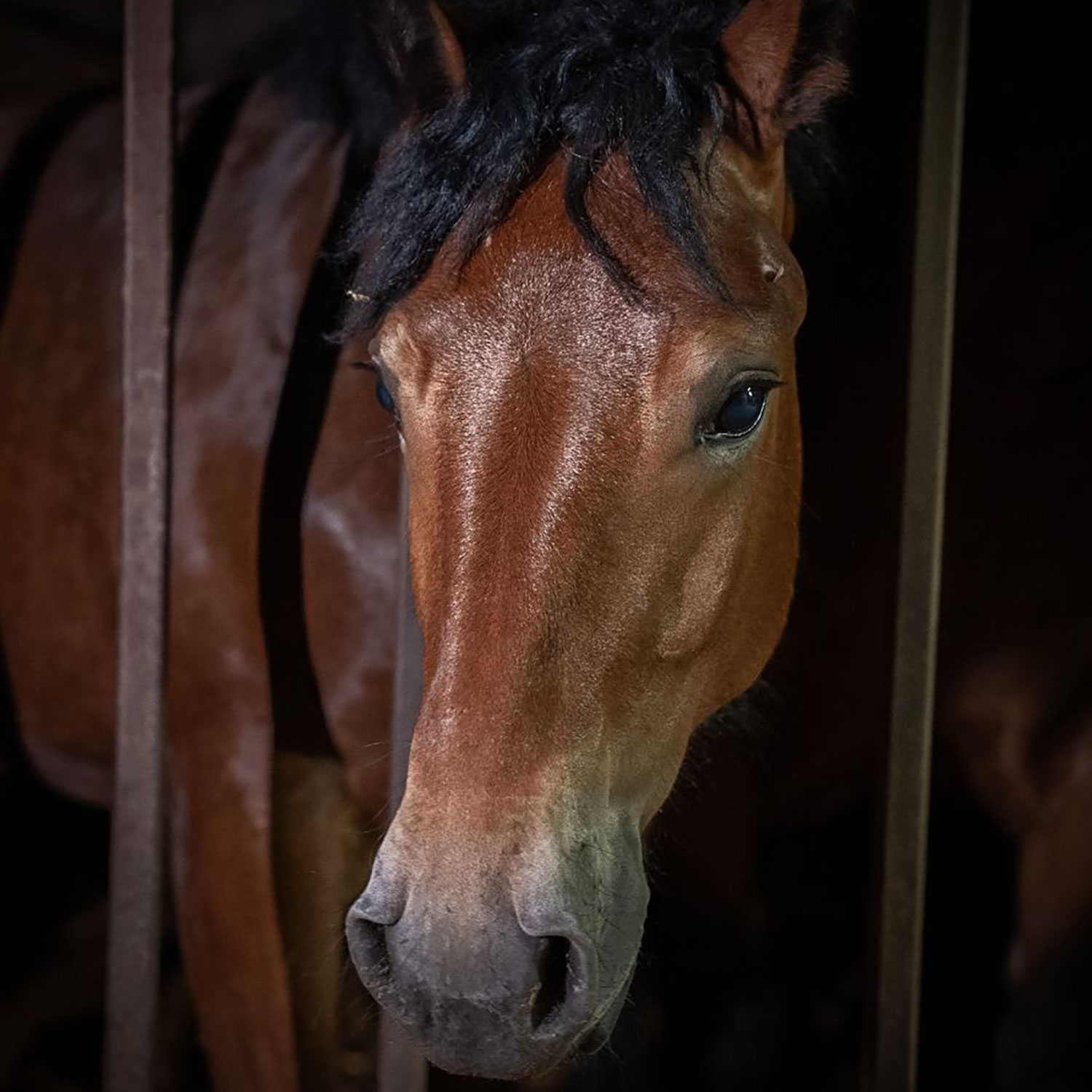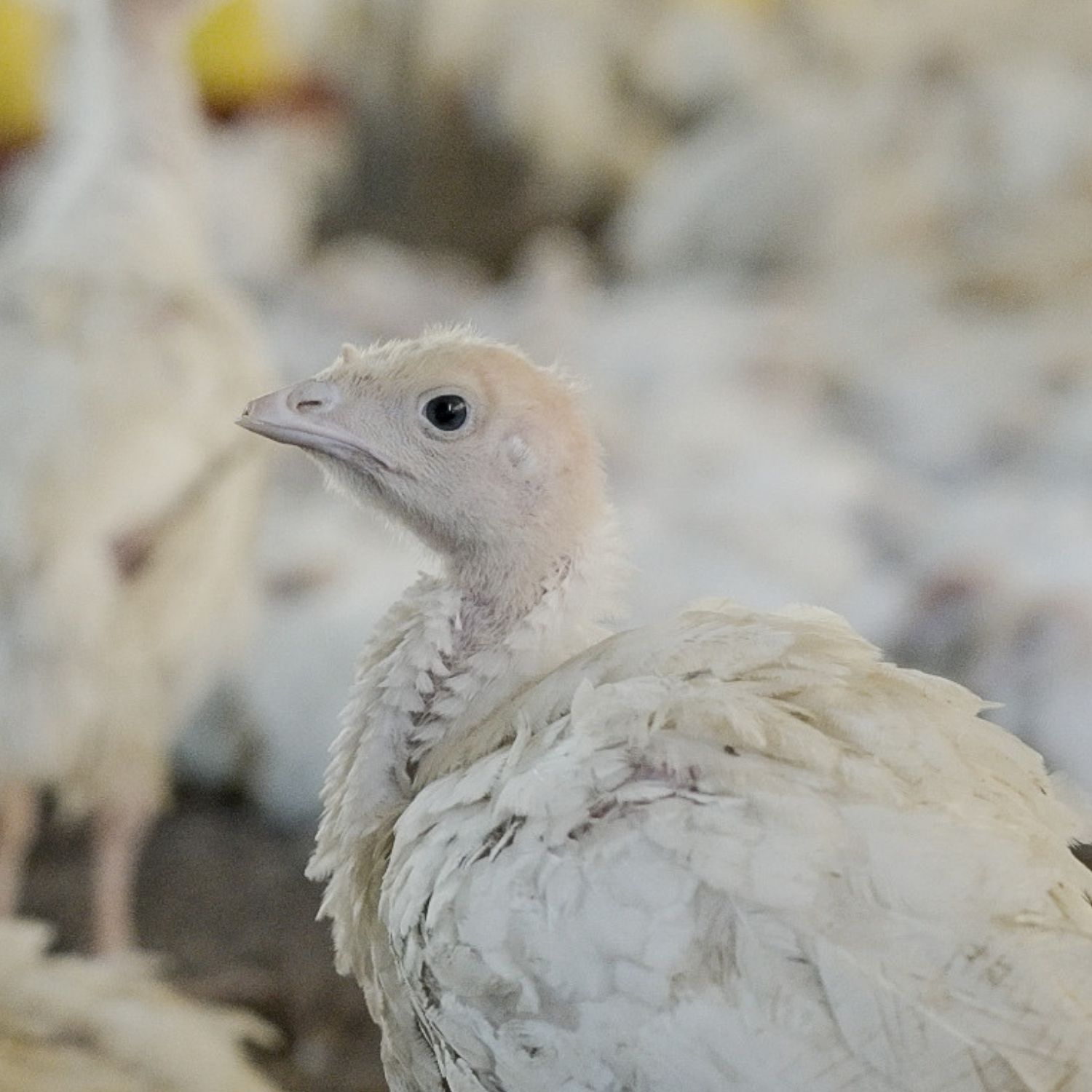Investigation: US horses awaiting slaughter in Mexico

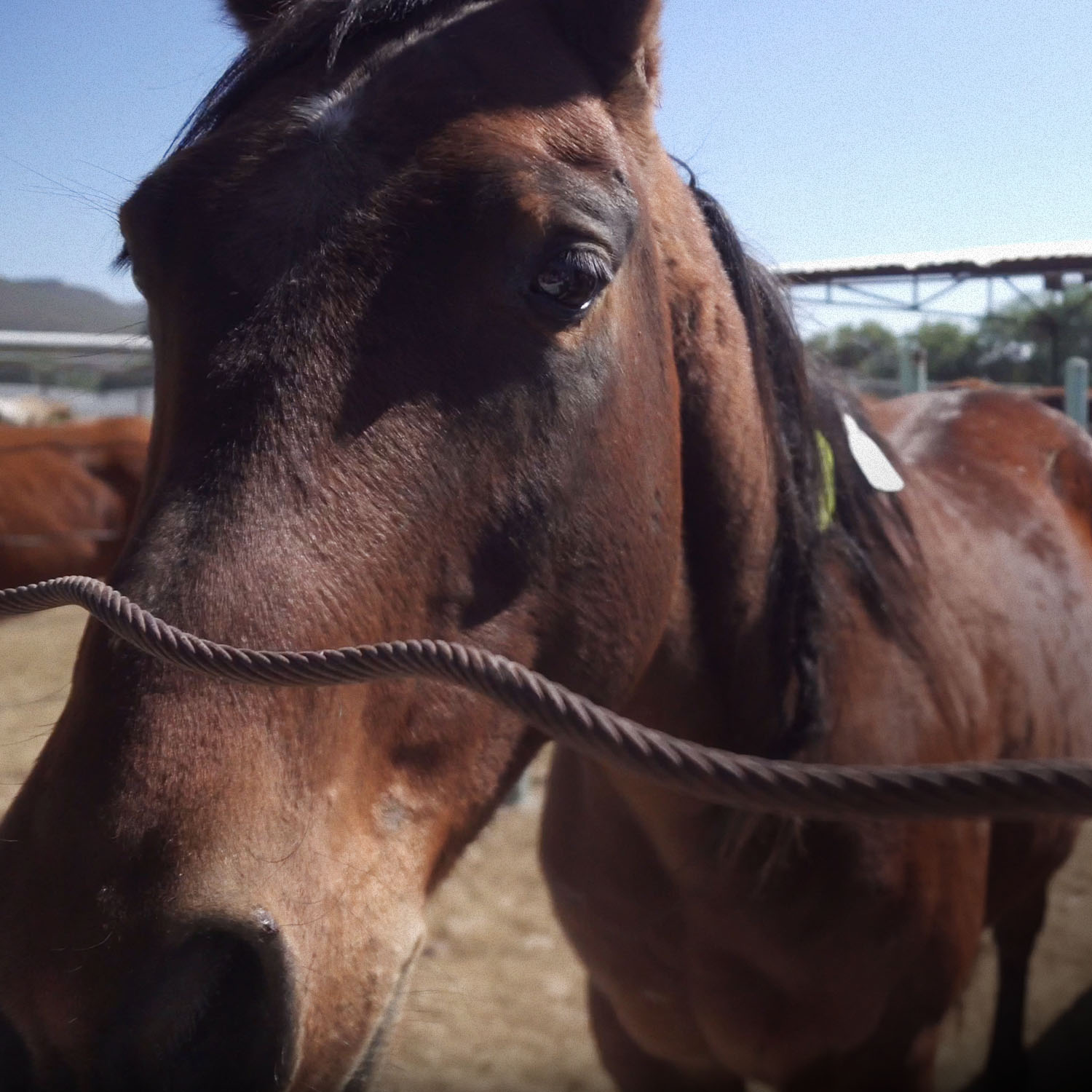
Update February 27, 2025: The SAFE Act, which would ban the export of U.S. horses for slaughter, was reintroduced in Congress—just ahead of National Horse Protection Day on March 1.
Take Action: Support the end of horse slaughter in the U.S by signing below.
In a new two-part investigation by Animal Equality, investigators film proof of American horses being held at a slaughterhouse in Zacatecas, Mexico.
This investigation comes a month after Animal Equality released an international campaign to end horse slaughter. Nearly 100,000 supporters worldwide have signed the petition to end this practice.
Though the United States does not slaughter horses within its borders, more than 21,000 animals are sent to Mexico and Canada every year. Most of them are killed and sold as meat. The evidence collected by Animal Equality proves an ongoing practice that 83% of Americans oppose.
Evidence of US horses used for meat
During Animal Equality’s investigation in Zacatecas, Mexico, investigators recorded horses being held in a corral of the Cárnicas de Jerez slaughterhouse. This company supplies meat from these animals to Russia, China, Vietnam, and Japan. Horses filmed at this facility are identifiable as American horses by USDA stickers placed on their bodies.
Animal Equality investigators filmed a horse from the United States—with USDA tag number 5036. A veterinarian at the facility was filmed confirming the origin of this horse by saying, “5036, which you can read there. He is from the USA.”
Footage shows documentation of how 5036 may have ended up at the slaughterhouse. The documents show this slaughterhouse receives some of its horses from an auction in Bowie, Texas. These animals are purchased at auction when they become too old or injured after a life of breeding, ranching, and horse riding, among other purposes.
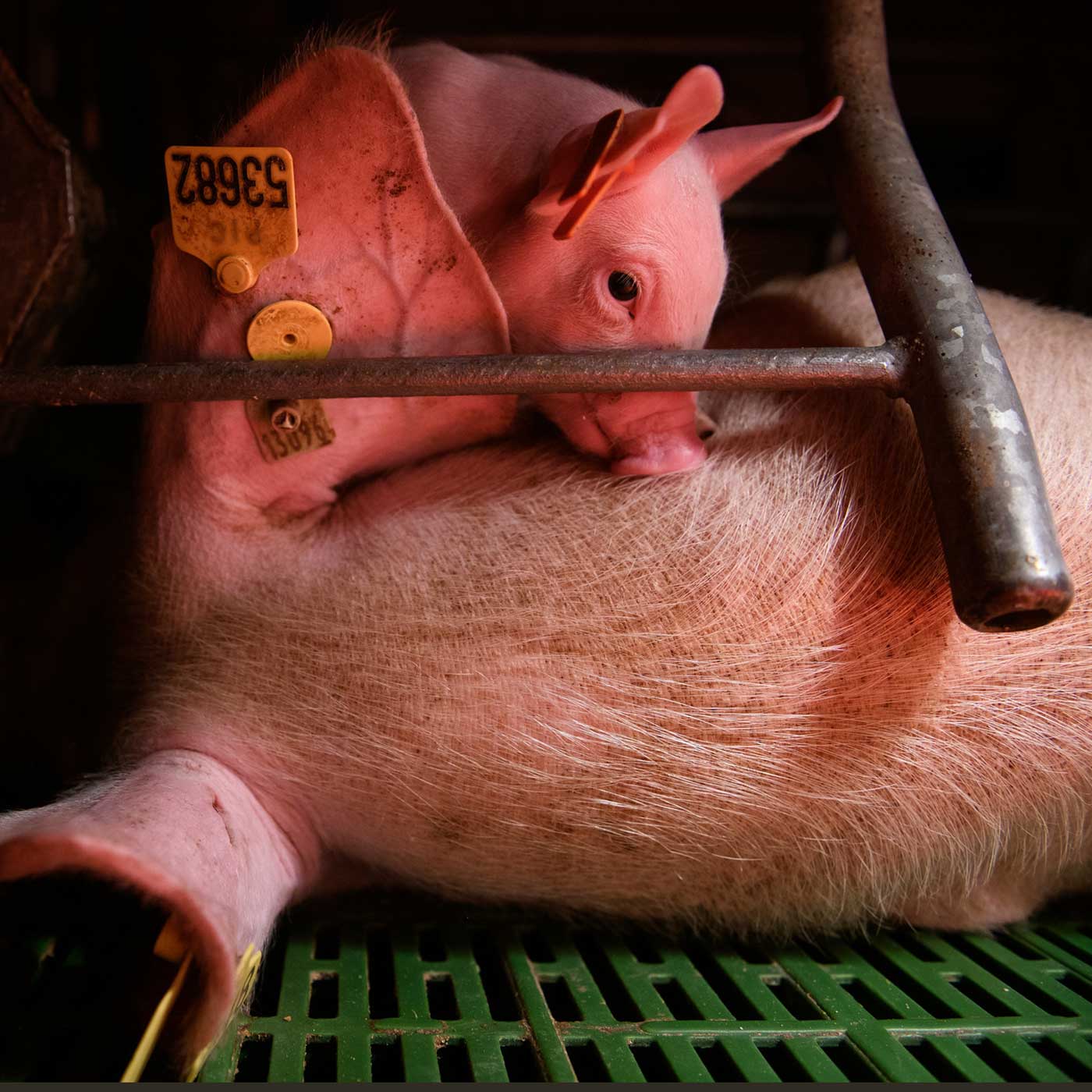
WILL YOU STEP UP FOR HER?
Her mother’s life was spent in a cage. She will suffer the same fate. But you can change this for millions of animals, currently trapped in factory farms.
Your support makes our investigations, campaigns, and legal work possible .
Only $25/month impacts 1,300 animals in a year.
Horses from this particular auction are transported across Texas for nearly eight hours. They then cross the border into Mexico in Eagle Pass and travel for more than 9 hours until they arrive at the Cárnicas de Jerez slaughterhouse in Zacatecas—a total of 17 hours of travel.
These animals are transported to slaughter on trucks designed for smaller animals with shorter necks. This means horses are forced to hold their head down for the duration of travel. With a large number of horses loaded onto the trucks, there is no room for the animals to move.
These skittish animals also fight for dominance in cramped spaces. Weaker horses cannot escape the bites and kicks from more dominant animals and endure injuries during travel. A 2021 study on horse welfare analyzed the health of horses in a total of 113 trucks, including those imported from the United States into Mexico. It found that 8 out of 10 horses were bruised. On average, each horse had two bruises, and almost half were severe or very severe.
Horse 5036 likely endured a similar journey to get to the slaughterhouse, where Animal Equality investigators captured the last images of him. He was slaughtered the day after filming.
The death of horse 5036, as well as the death of tens of thousands of American horses every year, is unnecessary and unacceptable. As Animal Equality has documented with this investigation, the US is sending these horses outside of our borders so that their killing is out of sight of the majority of Americans that oppose the slaughter of horses for human consumption. Our citizens agree this suffering is wrong—now it’s time for the US Government to ban it once and for all.
Sharon Núñez
President of Animal Equality
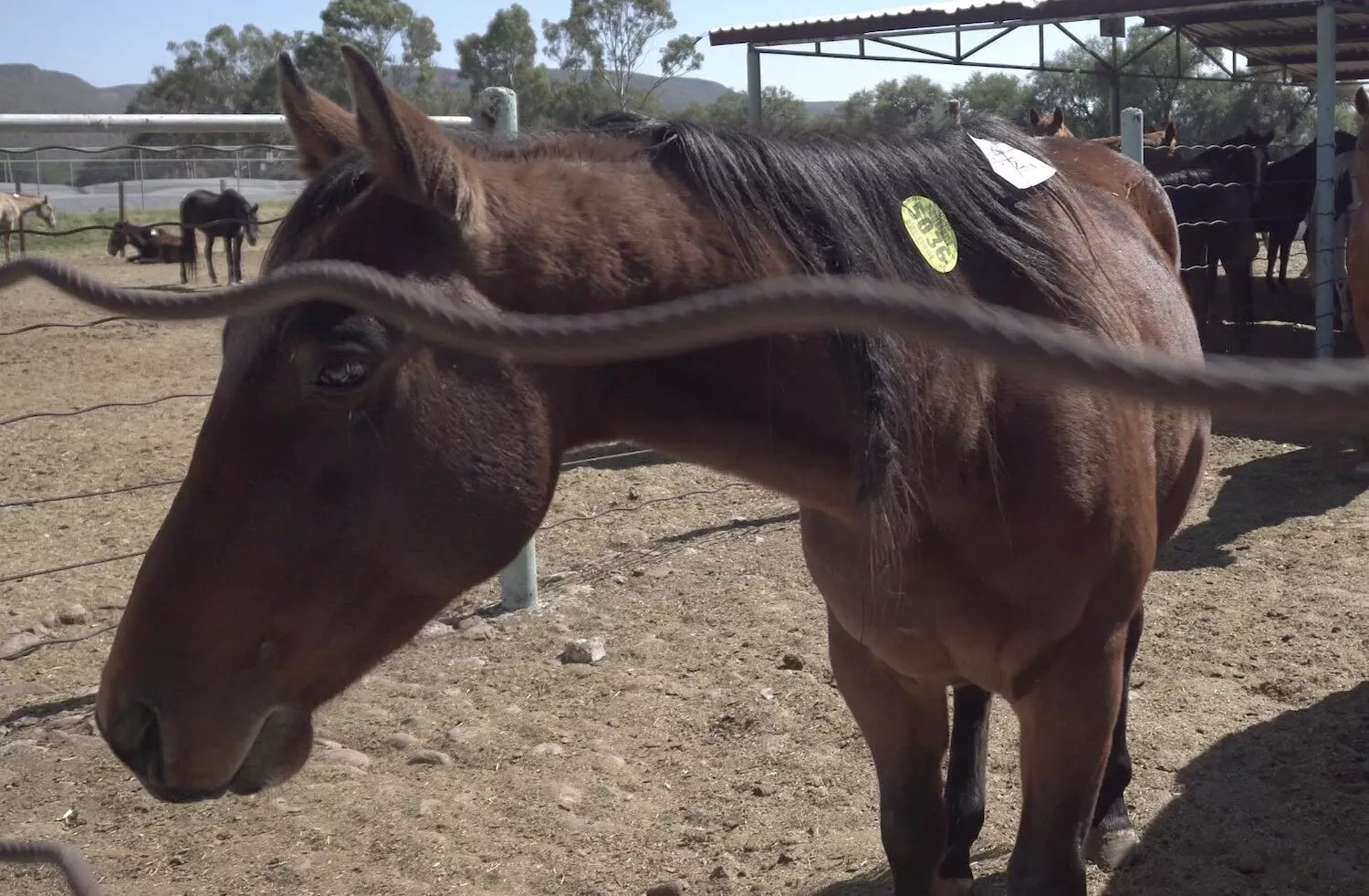
The fate of horses inside Mexico’s slaughterhouses
As the second part of this investigation, Animal Equality exposes the slaughter of horses in Mexico for human consumption.
These horses are not identified as originating from the US. This investigation shows the type of treatment animals face inside Mexican horse slaughterhouses, where American horses could also end up. We do not know whether US horses end up in a Federal Inspection Type (TIF) slaughterhouse—the only eligible facility to export animal products for human consumption—or one with poor or no regulation.
The footage was captured at a slaughterhouse in Arriaga, Chiapas. This facility does not report the slaughter of horses and only reports that cows are killed. The evidence found also shows serious non-compliance with the Mexican Official Standard that determines methods for killing animals to avoid unnecessary suffering.
As seen in the footage captured by Animal Equality:
- Sick and malnourished animals cannot walk and are forced to move by being beaten with sticks or hung with chains to suffocate them while conscious.
- Workers routinely use electric shock or a pressurized water hose to spray horses in the face to herd these animals.
- Horses are ineffectively stunned before slaughter due to inexperienced workers and a lack of veterinarian supervision. Some are shot in the head multiple times before being effectively stunned when workers use the captive bolt stunning method.
- After stunning, Animal Equality investigators found slaughter often occurred later than the 30-second requirement made by the Mexican Official Standard. Horses were killed while conscious.
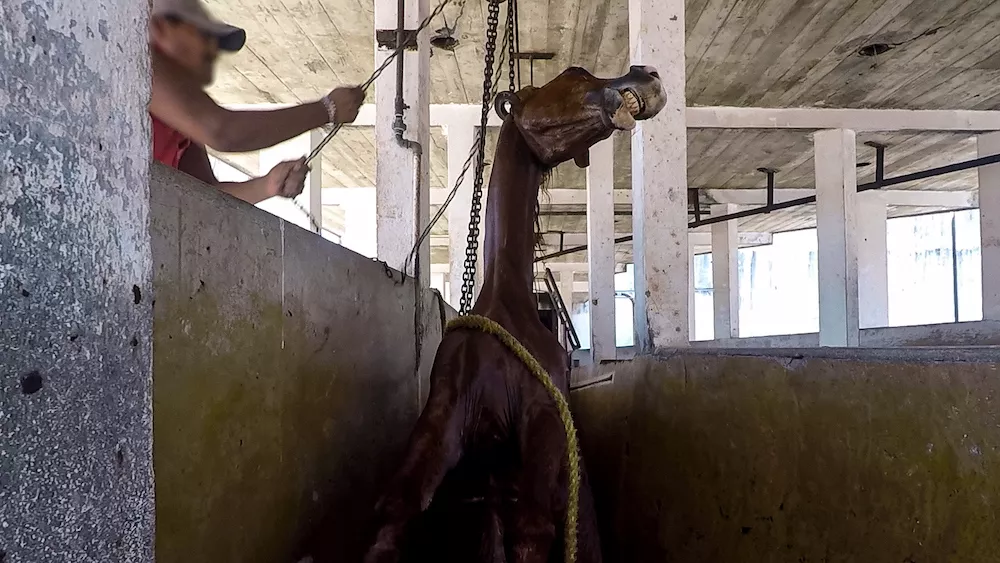
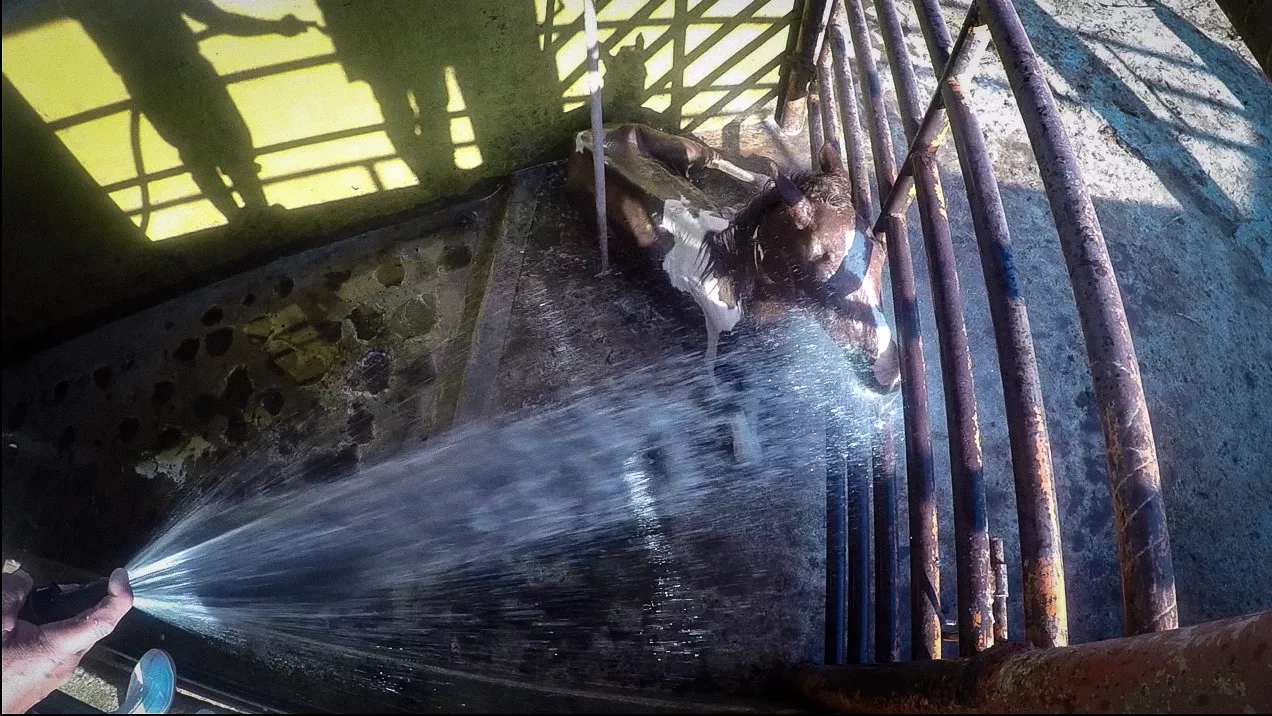
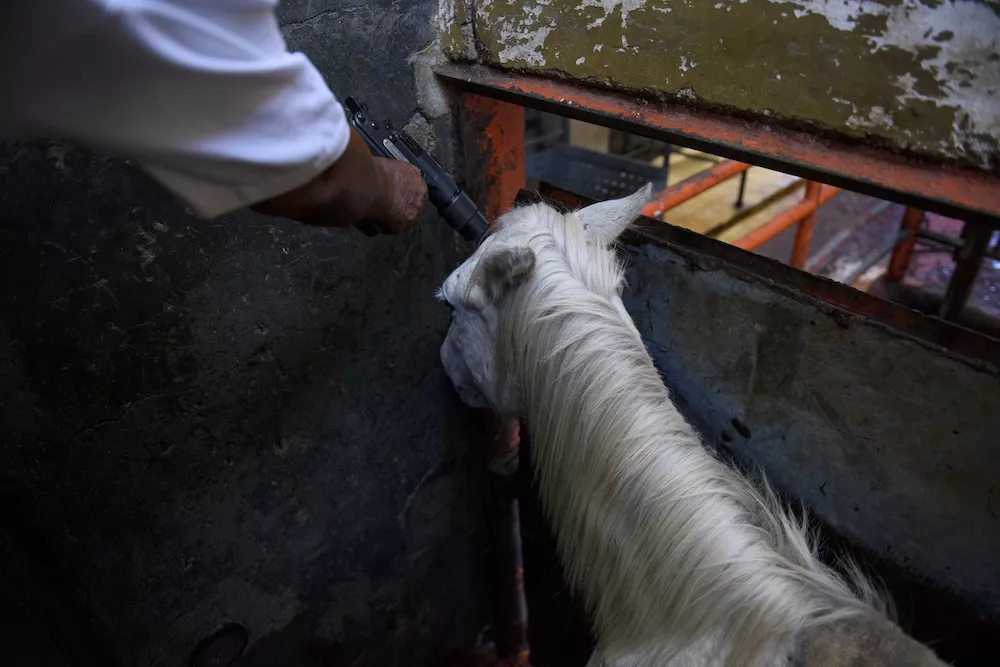
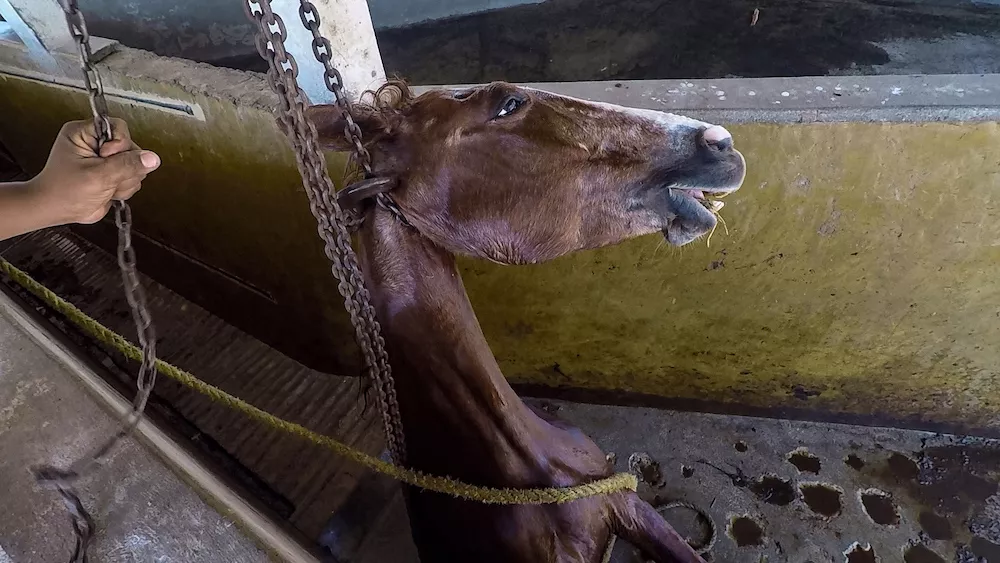
Animal Equality has reported these findings of animal cruelty to the appropriate authorities in Chiapas.
Horse slaughter in the U.S.
There is currently no permanent federal ban on the exportation or slaughter of American horses in the US. Horse slaughter occurred in the US as recently as 2007.
The practice dissolved when Congress took funding away from USDA inspectors to oversee horse slaughterhouses. Meat from horses could no longer be sold because only USDA-approved meat is legal. To retain profits, the US shifted focus to transporting horses to Mexico and Canada to be killed and sold as meat.
From 2001 to 2020, the US sent over 1.6 million horses to slaughter outside its borders. In 2021 alone, 24,000 horses were sent to Mexico and Canada for slaughter.
The US Government must protect these animals and ban their transport for slaughter in other countries. Please join our campaign asking the US Government to end the slaughter of American horses.
Every year, thousands of U.S. horses are transported to Canada and Mexico, and then slaughtered for human consumption. Sign the petition to help horses!
Just like the dogs and cats that many of us live with, horses are sentient and intelligent beings. Despite this, they are treated as a commodity in the global meat trade the US continues to contribute to.
Whether it’s meat from cows, pigs, chickens, or horses, Animal Equality’s investigators have shown that animal abuse in the meat industry is common. This mistreatment can only be stopped if there is no consumption. Try a plant-based diet and say “no more!” to animal cruelty.
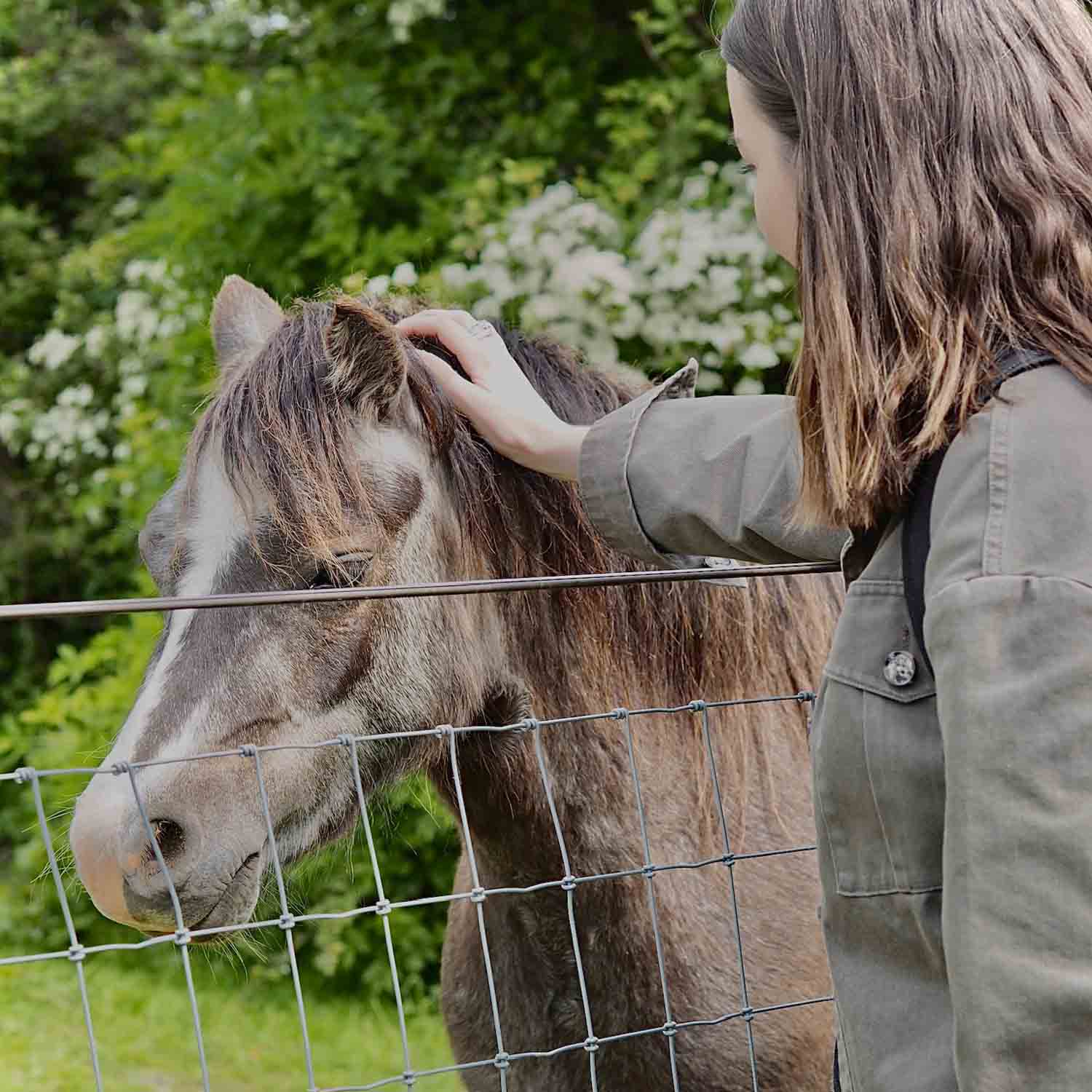
Defend HORSES
Considered companions by many, horses are sensitive and intelligent animals who deserve protection.
Protect these beautiful animals by choosing plant‑based foods.

